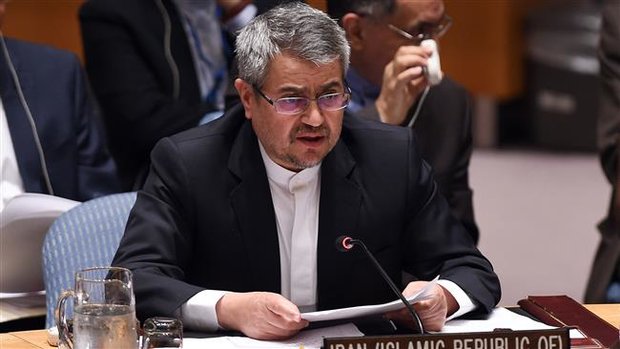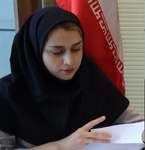"Peace is is worthy, but fragile; factors such as occupation, aggression, terrorism, violent extremism, xenophobia and Islamophobia, intolerance, injustice, political competition, weapons of mass destruction, especially nuclear weapons, poverty, injustice, underdevelopment and lack of development, water and other resources and climate change crisis are among some of the factors threatening peace in different ways and at different levels," Khoshroo said on Thursday, addressing a meeting of the UN General Assembly on the agenda 14: Culture of Peace.
The following is the full text of Khoshroo's speech at the UN General Assembly meeting:
Mr. President,
At the outset, I would like to thank the Secretary-General for his report on the topic and also to appreciate the efforts made by Pakistan, Philippines and Bangladesh, as the main sponsors of the resolutions under today's agenda item.
As the quest for international peace and security forms the foundation of the United Nations, today's agenda item, Culture of Peace, is at the heart of the work of the Organization.
At this juncture, culture of peace comes second to no other issue in terms of urgency and relevance.
Mr. President,
To the same extent that peace is precious, it is also fragile. A broad range of threats, including occupation, aggression, terrorism, violent extremism, xenophobia, Islamophobia, intolerance, injustice, political rivalries, Weapons of Mass Destruction especially nuclear weapons, poverty, inequality, under-development and non-development, water and resources crisis and climate change can pose grave threats to peace, each in different ways and at different levels.
What is happening today in many parts of the world, from the Occupied Palestinian territory, Yemen, Syria, Iraq and beyond all reflect our failure towards a more peaceful world. At the same time, what is at the core of the Culture of Peace is to have hope for the common future of humankind, and not to give up on our efforts towards solidarity. What the world needs at this time is a renewed commitment by all to peace.
Human tragedies of the last century have taught us many lessons on importance of diversity, tolerance, human rights and fundamental freedoms, moderation, dialogue among cultures and co-existence. We need to move forward and not to set back on these core values.
Mr. President,
The recent setbacks imposed on such violent extremist as Daesh, Jebhat al-Nusra and other terrorist groups in our region show clearly that, however brutal and ruthless the forces of terrorism and violent extremism, they have no hope against the determination of nations. However, peace means more than absence of war.
Indeed, for culture of peace to flourish, we need to address the culture which spreads hatred and intolerance. Genuine peace can foster only through planting the seeds of wisdom, compassion, dialogue and respect for each others in the minds of all individuals.
Mr. President,
Those who root their identity or power in confrontation, rejection and excommunication, are inherently antagonist to tolerance and peace. The whole world knows which absurd mentality is nurturing the dark forces of terrorism. Resolute action against this cult of hatred is, however, long over-due, and what has prevented such an action is short-sighted political gains and vested interests of some few.
To see peace, it is imperative to give up on the mentality of intervention, as well as cultural and military hegemony over the world. If we want a genuine peace, once and for all, centers of power should acknowledge that there is no military solution possible to the world's complicated problems.
Mr. President,
War and conflict has always imposed themselves onto societies. Today, however, the cost of war has made it a non-option. It is imperative, thus, to make long-lasting peace a reality.
To that end, the Islamic Republic of Iran, as the main proponent of the idea of "A world against Violence and Extremism", once again invites all peace-loving nations to join forces for the cause of peace.
I thank you, Mr. President.
LR/PR


























Your Comment